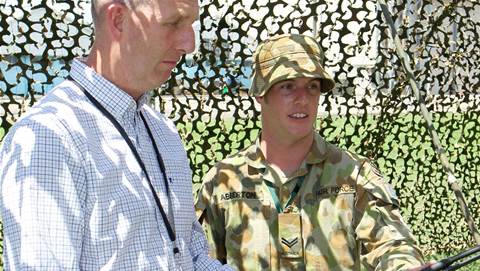The University of New South Wales has embarked on the second iteration of its Applied Smart Grids course, designed to "cross-skill" ICT, telecommunications and energy engineers.

Since the pilot’s launch in February, the University has graduated 12 engineering and utilities staff from its partner organisations, IBM and Ausgrid (formerly known as EnergyAustralia).
The course was the product of 18 months of work and targeted a perceived "gap" in skills at IBM and Ausgrid, which had been collaborating on a $170 million smart grid project since 2008.
According to UNSW professor Vassilios Agelidis, course designers took an iterative approach based on student feedback, since smart grids was a new area that spanned various disciplines.
The pilot course was currently delivered by: three senior Ausgrid engineers; IBM architects Thomas Tschirschwitz and Christopher Pavlovski; and Agelidis and Mihai Ciobotaru of UNSW’s Centre for Energy Research and Policy Analysis (CERPA).
Agelidis expected the same instructors to be involved when a commercial course was launched later this year.
Applied Smart Grids graduates would receive a certificate of completion that could go towards various UNSW postgraduate telecommunications, electrical or computer engineering degrees.
Depending on demand, UNSW would also consider running a smart grids course for business executives and decision-makers without technical expertise, he said.
"I’m pretty sure that demand for skills in this area is very high," Agelidis told iTnews. "We have the iceberg in front of us, and we’ve just scratched the surface."
IBM executive project manager David Jones expected course material to apply to "any jobs that are associated with projects for developing smart grids" – touted to be the energy-efficient, digitally monitored electricity network of the future.
Jones highlighted opportunities in Australia, the US and China, and organisations such as IBM, Ausgrid, GE and Siemens as potential employers.
An additional 14 students from IBM and Ausgrid commenced the pilot course this week, and a third group was expected to begin training in June.
The partners were currently considering funding, course delivery, and instructors for a commercially available course expected to launch in July.


_(28).jpg&h=140&w=231&c=1&s=0)


.png&h=140&w=231&c=1&s=0)



_(26).jpg&w=100&c=1&s=0)

 iTnews Executive Retreat - Security Leaders Edition
iTnews Executive Retreat - Security Leaders Edition












_(1).jpg&h=140&w=231&c=1&s=0)



